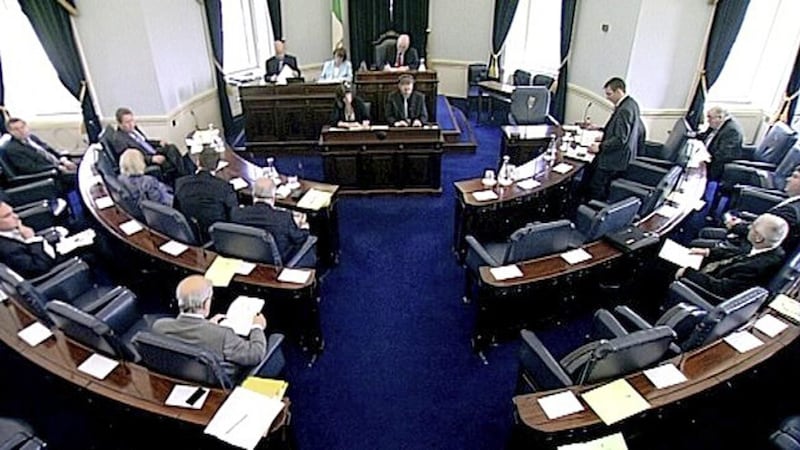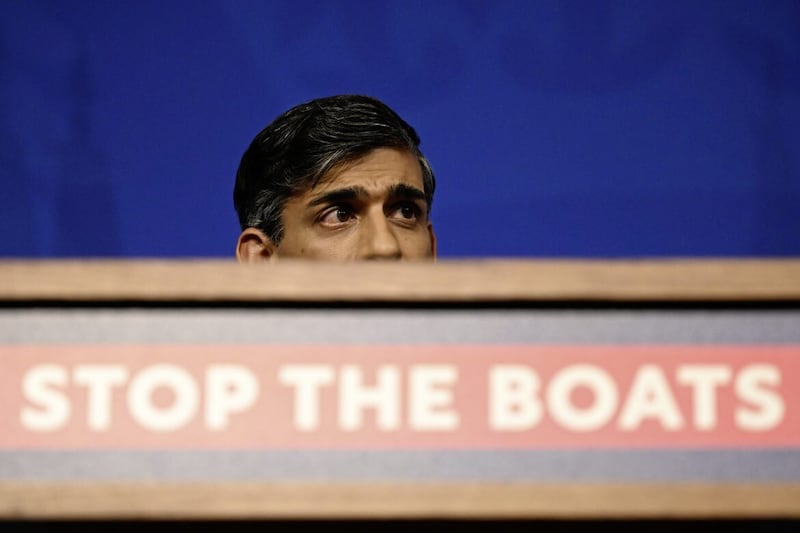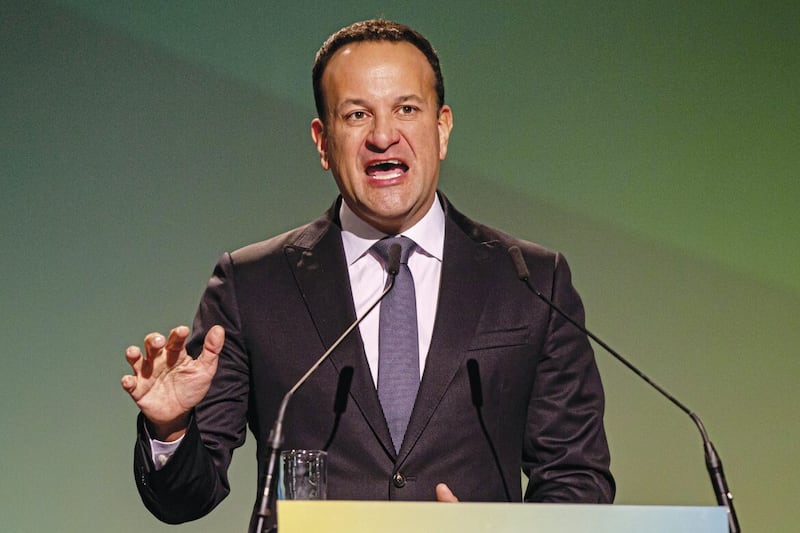SEANAD Éireann announced this week that it has opened a public consultation process on the constitutional future of the island of Ireland. The Seanad committee will be chaired by the House’s Cathaoirleach, Fianna Fáil Senator Mark Daly.
In this 100th year anniversary of the Seanad, the consultation spearheaded by Daly is very much in keeping with the theme for the centenary celebrations, which is “Minority Voices, Major Changes”.
When the Seanad was first constituted, it included a number of members from unionist backgrounds amongst whom were Lord Glenavy, a former Unionist MP, and Sir Bryan Mahon, Commander of the 10th (Irish) Division in Gallipoli and Commander in Chief of the British Army in Ireland from 1918 until 1921.
Other members from the north included Henry Barneville, a surgeon from Belfast, and Henry Greer, a British soldier turned horse trainer from the Moy.
In successive Seanaid, there had been a tradition of nominating persons from the north, including John Robb, Gordon Wilson and Maurice Hayes. The last of these nominees was Martin McAleese who was appointed in 2011 and resigned in 2013.
Ian Marshall was invited by Fine Gael to run in a Seanad by-election in 2018 and supported by Sinn Féin, however he lost his seat in the 2020 general election and was not re-nominated by the Taoiseach.
It is unfortunate that this tradition of nominees from the north has been all but ended and it’s difficult at times to determine whether it’s because Fine Gael and Fianna Fáil no longer believe it’s worth doing, or because cronyism and keeping party members who lost their Dáil seats within the Oireachtas are seen as more important.
The consultation process offers a measure of redressing that imbalance by actively bringing northern voices into a debate on the constitutional future of this island.
There are those within unionism will say why should we engage in a debate about constitutional change when we believe that the union with Britain should be maintained? But this is an opportunity to sell the union in a way that political unionism has singularly failed to do.
In the context of a global cost of living crisis, the ending of free movement leading to major travel disruption for British citizens and legislation in Westminster which, if passed, is likely to result in a no-deal Brexit, many within moderate unionism and the political centre ground could view a re-united Ireland within Europe as a better option for them and their families.
The Seanad committee has said it will accept submissions from “the general public, organisations or any interested parties” and that the views of young people “from throughout the island on this issue will be listened to, including the voice of all communities and traditions in Northern Ireland on their vision for the future”.
In a statement, it said: “The committee encourages people from all traditions and opinions to lend their voices to this process and welcomes the voices of the unionist community and their vision for the future.”
In December last year, when asked about the potential of reunification on the BBC’s Sunday Politics programme, Ulster Unionist leader Doug Beattie said: “I don’t think it is going to be anywhere near five or 10 years, 20 years, or 30 years. I think it is way down the road. Nobody has put anything on the table.”
He added: “I think it is really unreasonable for anyone to think I as a unionist should help with the architecture around the argument for a united Ireland by engaging in it.
“I don’t need to. Where we get to the stage where we have to do this, we will engage in order to put our point across for staying in the UK.”
We have now reached that stage.
Beattie’s remarks are in step with comments made over the last couple of years by Micheál Martin and Leo Varadkar as leaders of Fianna Fáil and Fine Gael. They have repeatedly said now is not the time for a border poll and that even talking about constitutional change is divisive and unsettling.
Political unionism could capitalise on that negative attitude within the current Irish government by engaging with the Seanad committee and voicing its opposition to constitutional change and having that reflected in the committee’s report. Or it can continue to ignore that the conversation is even taking place.
What unionism cannot do is stop the conversation from happening, nor have a veto over the outcome of any parliamentary process. There is an opportunity, on the record, to sell the union to voters in the north who are undecided or wavering.
More importantly, as the logical next steps to the Seanad public consultation committee’s work would be the development of a government white paper on constitutional change, now is the time for unionism, and everyone with a vested interest in how Ireland’s second Republic will look, to make their case.
Unionism refusing to engage in conversations won’t stop them from happening. It was ever thus, as the history of the peace process teaches us.








